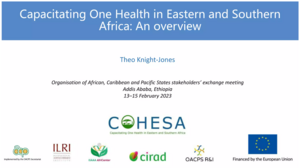
Leveraging informal markets for health and nutrition security
Abstract
Functioning food value chains are essential to assuring health and food security. In low- and middle-income countries, informal food markets, or traditional value chains, are the most important source of food for the largest part of the population, in particular the poor. Leveraging such value chains is essential to offering consumers in those country healthy and nutritious food options that are affordable, acceptable and preferred. The chapter discusses the contribution of informal markets to food and nutrition security and present options to leveraging the steps along the value chain to contribute to improve food security, nutrition and health.
The capacity to appropriately nourish oneself is a basic human need, and a basic human right. Such right is encapsulated very accurately in the UN's definition of food and nutrition security as “when all people at all times have physical, social and economic access to food, which is consumed in sufficient quantity and quality to meet their dietary needs and food preferences, and is supported by an environment of adequate sanitation, health services and care, allowing for a healthy and active life”. The Sustainable Development Goals of the recently launched UN 2030 development agenda press the world to achieve food and nutrition security globally, and to do so through environmentally sustainable agriculture.
Citation
Alonso, S. and Dominguez-Salas, P. 2019. Leveraging informal markets for health and nutrition security. In: Ferranti, P., Berry, E.M. and Anderson, J.R. (eds), Encyclopedia of Food Security and Sustainability 3: 390–395.










